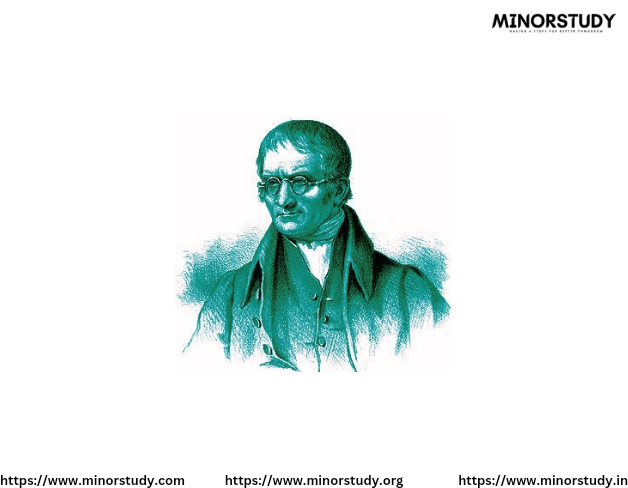Jane Fraser is the Chair and Chief Executive Officer (CEO) of Citigroup, one of the largest financial services organizations in the world.
- Minorstudy Web blogs
- Dec 6, 2024
- 4 min read

Jane Fraser is the Chair and Chief Executive Officer (CEO) of Citigroup, one of the largest financial services organizations in the world. She became the CEO in 2021, making her the first woman to lead a major U.S. bank.
Early Life and Education:
Born: December 13, 1967, in St. Andrews, Scotland.
Fraser graduated with a Bachelor of Arts in Economics from the University of Cambridge in 1988. She then earned a Master of Business Administration (MBA) from Harvard Business School in 1994.
Early Career:
Jane Fraser began her career in banking and finance, and before becoming CEO of Citigroup, she built an impressive portfolio in the financial services sector.
Start in Banking:
Fraser began her career at Goldman Sachs, working in their investment banking division. After a few years there, she transitioned to McKinsey & Company, a global consulting firm, where she gained experience in financial services and strategy.
Joining Citigroup:
In 2004, Fraser joined Citigroup, where she held various leadership positions. She initially worked in investment banking and later served in roles in global consumer banking, mortgage business, and wealth management.
Leadership at Citigroup:
Becoming CEO:
In 2021, Fraser became the first female CEO of Citigroup, succeeding Michael Corbat, who retired after leading the company for several years.
She made history as the first woman to lead a major U.S. bank, a landmark achievement for women in finance and leadership.
Strategic Vision:
As CEO, Fraser has focused on shifting Citigroup’s business model, with an emphasis on streamlining operations, reducing costs, and boosting profitability in the bank’s core divisions.
She has also focused on making Citigroup more global and diverse, with a commitment to serving customers in both emerging and developed markets. Under her leadership, Citigroup has made significant investments in digital banking and financial technology.
Fraser is focused on driving sustainability efforts and increasing the company’s impact on environmental, social, and governance (ESG) initiatives.
Reforming Citigroup:
Fraser's tenure has been marked by efforts to simplify the bank’s structure and increase efficiency. She has overseen the sale of non-core assets and restructuring of Citigroup's global business to refocus on more profitable markets.
One of her key priorities has been making Citigroup’s operations more customer-centric and digitally driven, particularly in areas such as wealth management, digital banking, and mobile banking.
Diversity and Inclusion:
Fraser is committed to diversity, equity, and inclusion, both within Citigroup and in the broader financial industry. Under her leadership, Citigroup has made strides in increasing gender diversity and supporting minority talent.
Citigroup was among the first major U.S. banks to publicly pledge to close the gender pay gap and to set goals for increasing diversity at all levels of the organization.
Leadership Style:
Collaborative and Empowering: Jane Fraser is known for her inclusive and collaborative leadership style. She focuses on empowering employees to take ownership of their work and make decisions that drive business growth.
Data-Driven Decision Making: Fraser is highly analytical and data-driven, leveraging information and technology to make informed decisions that impact Citigroup’s strategy and operations.
Customer-Centric: She believes that a strong focus on client needs and providing innovative financial services will allow Citigroup to maintain its leadership in the competitive global banking sector.
Awards and Recognition:
Fraser has been recognized as one of the most powerful women in the world by several publications, including Forbes and Fortune. She has consistently appeared on the Forbes’ Most Powerful Women list and was named to Fortune’s 50 Most Powerful Women in Business.
She has been celebrated for breaking barriers as the first female CEO of a major Wall Street bank, and her leadership has made her a role model for women in finance and business.
Personal Life:
Jane Fraser is married to David Fraser, and they have two children.
She is deeply committed to work-life balance and has spoken about the importance of mentoring young professionals and supporting women in leadership roles.
Philanthropy and Social Impact:
Advocacy for Women: Fraser has been an advocate for advancing women in the workforce, particularly in the male-dominated finance industry. She has mentored many women in business and has pushed for more opportunities for women at Citigroup.
Social Impact: Under her leadership, Citigroup has focused on supporting financial inclusion and helping underserved communities. Citigroup has launched several initiatives to improve access to financial services for underrepresented populations, including investing in affordable housing and small business support.
Quotes:
“At Citigroup, we believe that every person, regardless of background, deserves access to the tools, resources, and opportunities to succeed.”
“Our industry is being transformed by new technologies, and we need to be at the forefront of that change, adapting quickly and innovating for our clients.”
“Diversity is not just a goal; it is a business imperative. It enriches our work and drives better outcomes for our clients.”
“To lead, you need to listen, empower others, and create an environment where people can grow and succeed.”
Legacy and Significance:
Jane Fraser has made a significant impact on the financial industry, both as a female leader in a traditionally male-dominated field and as a champion of diversity, technology, and financial inclusion. Her appointment as the first female CEO of a major U.S. bank marks a pivotal moment in the history of Wall Street and serves as an inspiration for future generations of women in business.
Through her leadership, Citigroup has adapted to an increasingly digital world and taken strides to promote sustainability and diversity within the organization and beyond. Fraser’s strategic direction is shaping the future of Citigroup, making it more agile, customer-centric, and committed to making a positive impact in society.











Comments